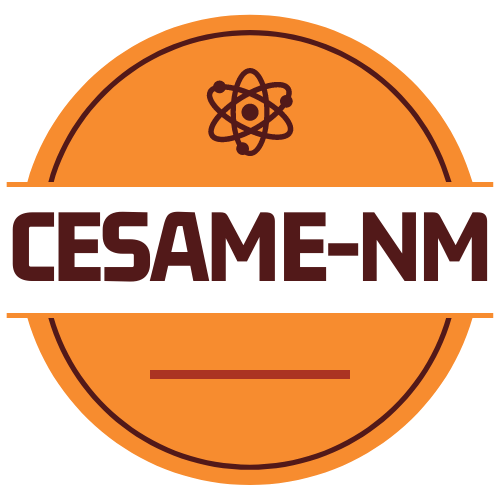In the fast-paced world of multi-site retail and service operations, staying ahead means embracing tools that simplify complexity and drive results. Modern franchise networks face unique challenges, from maintaining uniform brand standards to coordinating logistics across dozens or even hundreds of locations. An integrated software platform addresses these pain points by bringing disparate processes together, creating a seamless environment where franchisors and franchisees can collaborate effectively. This technology has become indispensable for those seeking to reduce costs, boost productivity, and deliver a consistent customer experience at every touchpoint.
Streamlining operations through unified systems
Centralising business functions for seamless control
One of the most significant advantages of adopting a franchise management software solution is the ability to consolidate various business functions into a single, cohesive platform. Instead of juggling multiple applications for sales, inventory, finance, and customer data, operators gain access to a centralised database that stores everything in one place. This unified approach eliminates the need to switch between different systems, reducing the risk of errors and saving valuable time. When all departments work from the same set of real-time information, decision-making becomes faster and more accurate, enabling franchisors to respond swiftly to market changes or operational challenges.
Cloud-based franchise software has revolutionised how networks operate by allowing access from any internet-enabled device, which simplifies the onboarding of new locations and supports remote maintenance. Updates and enhancements are deployed remotely, minimising downtime and labour costs while ensuring that every site benefits from the latest features. Scalability is another critical benefit, as businesses can adjust their cloud service to match evolving computing or storage needs without major infrastructure investments. For organisations spread across multiple regions, this flexibility translates into smoother expansion and the confidence that growth will not outpace the technology.
Automation plays a pivotal role in optimising workflows and freeing staff from repetitive tasks. Business process automation allows franchise networks to handle routine activities such as marketing material requests, customer complaints, staff scheduling, and compliance procedures with minimal manual intervention. By automating these processes, teams can focus on strategic initiatives rather than administrative chores, leading to improved productivity and reduced error rates. Automated systems also reinforce brand standards by ensuring that procedures are followed consistently, which is essential for maintaining a uniform customer experience across all locations.
Simplifying stock management and reporting processes
Effective inventory management is a cornerstone of operational efficiency, and integrated software excels in this area by providing real-time tracking and automated replenishment. Franchise networks can evaluate collective materials and offer automation options, ensuring that stock levels are optimised to prevent both shortages and excess. Real-time visibility into inventory allows managers to see how much stock is available at each location and to move products between sites as needed, reducing waste and maximising profitability. Automatic reordering features further streamline the process by triggering purchase orders when stock falls below predefined thresholds, ensuring shelves remain well-stocked without constant manual oversight.
Financial integration is another area where unified platforms deliver substantial value. By combining financial data from all locations, the software automates accounting tasks, manages multi-currency transactions, and handles tax compliance with ease. Franchisors gain a comprehensive view of profit margins, sales trends, and operational costs, enabling them to make informed decisions about pricing, promotions, and resource allocation. Custom dashboards present key performance indicators in an accessible format, allowing executives to monitor the health of the business at a glance and identify opportunities for improvement. Forecasting capabilities built into the system help predict sales, inventory needs, and staffing requirements, which is invaluable for strategic planning and budgeting.
Centralised reporting transforms how franchise networks measure success and track compliance. Instead of relying on disparate spreadsheets or manual data entry, integrated systems generate detailed reports that capture performance across all locations. These reports highlight trends, flag potential issues, and provide actionable insights that drive continuous improvement. Granular user permissions ensure that sensitive information is accessible only to authorised personnel, while SLA tracking monitors service level agreements to guarantee that standards are consistently met. This level of oversight not only enhances accountability but also supports regulatory compliance by logging actions and maintaining an audit trail.
Strengthening communication and brand consistency

Improving dialogue between franchisors and franchisees
Clear and timely communication is vital for any franchise network, and integrated software platforms facilitate this by providing tools that keep everyone on the same page. Cloud-based systems enable franchisors to update franchisees instantly with the latest brand marketing materials, training resources, and promotional campaigns, ensuring that all locations receive consistent messaging. Internal communications are streamlined through centralised portals where announcements, best practices, and operational updates are shared in real time. This transparency fosters a sense of unity and shared purpose, helping franchisees feel supported and informed.
Customer Relationship Management, or CRM, is a key component of many integrated platforms, offering a centralised database that stores personal and business information such as sales history, quotes, and customer preferences. By managing contacts and data in one place, franchisors and franchisees can coordinate their efforts more effectively, avoiding duplication and ensuring that no opportunity is missed. Franchisees can access and update their own customer data with appropriate permission controls, empowering them to build stronger local relationships while giving the franchisor real-time visibility over the entire network. This dual capability enhances collaboration and ensures that customer service standards remain high across all locations.
Automation extends to communication workflows as well, with integrated e-forms and task assignment features that trigger alerts and assign responsibilities based on predefined rules. For example, when a customer complaint is logged, the system can automatically notify the relevant manager and escalate the issue if it remains unresolved within a set timeframe. This proactive approach reduces response times and ensures that problems are addressed promptly, enhancing customer satisfaction and protecting the brand's reputation. Field audits and compliance checks are similarly streamlined, with automated logging and reporting that reduces the administrative burden on staff and provides franchisors with a clear view of adherence to standards.
Maintaining uniform brand standards across all locations
Brand consistency is a hallmark of successful franchise networks, and integrated software is instrumental in achieving it. Standardised procedures are embedded into the platform, guiding employees and franchisees through each step of key processes and ensuring that every customer receives the same high-quality experience. Whether it is a promotional campaign, product launch, or customer service protocol, the system reinforces brand guidelines and reduces the risk of deviation. This consistency not only strengthens customer trust but also simplifies training and reduces the learning curve for new team members.
Document management features allow franchisors to store marketing collateral, operational procedures, and training manuals in a centralised location that is easily accessible to all authorised users. This eliminates the confusion that can arise from outdated or conflicting versions of documents and ensures that everyone is working from the most current information. As new locations are added, they can be integrated into the system quickly, inheriting the established processes and standards without the need for extensive manual setup. Cloud-based deployment makes this scalability both practical and cost-effective, enabling rapid expansion without sacrificing quality or control.
Performance tracking is essential for maintaining standards, and integrated platforms provide real-time monitoring of key metrics such as sales, customer satisfaction, and compliance scores. Franchisors can identify underperforming locations and intervene with targeted support, whether that is additional training, operational adjustments, or strategic guidance. Conversely, high-performing sites can be recognised and their best practices shared across the network, fostering a culture of continuous improvement. Custom dashboards and automated alerts ensure that important information is never overlooked, empowering leaders to take proactive steps to maintain and elevate brand standards.
The shift towards artificial intelligence is opening new possibilities for franchise networks, with AI-powered tools capable of automating complex tasks and summarising large datasets to deliver actionable insights. As technology continues to evolve, the integration of machine learning and predictive analytics will further enhance the ability of franchise management platforms to anticipate challenges, optimise operations, and support strategic decision-making. By investing in an integrated software solution today, franchise networks position themselves to thrive in an increasingly competitive and dynamic market.


Comments are closed